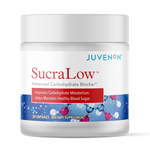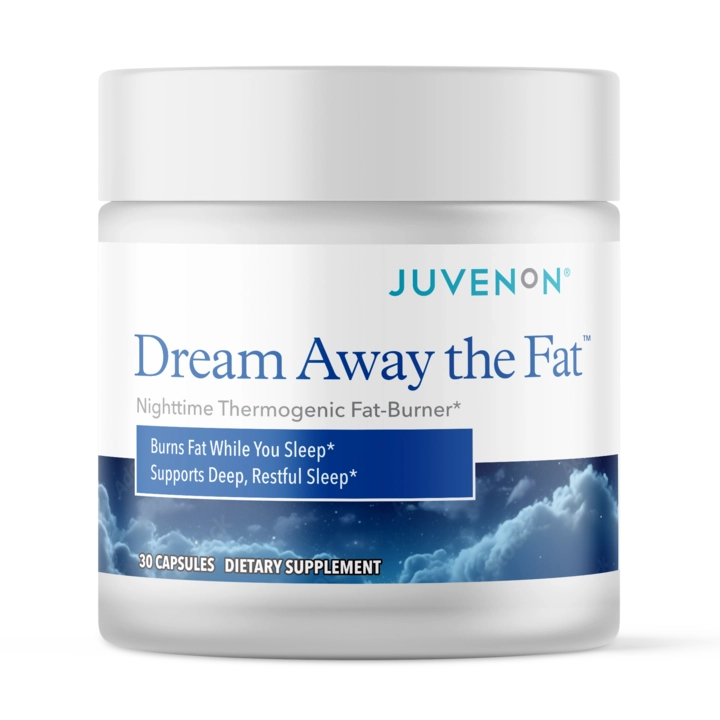Heart health supplements can be a topic of interest for anyone looking to support their cardiovascular system and combat the onset of cardiovascular disease. Here's a quick answer for those in a hurry:
- Omega-3 fatty acids: Beneficial for reducing inflammation and supporting heart function.
- Coenzyme Q10 (CoQ10): Helps with cellular energy production and may alleviate muscle pain from statin use.
- Fiber and sterols: Assist in managing cholesterol levels by reducing LDL.
- Garlic and green tea: Known for their potential to lower blood pressure and cholesterol.
- Magnesium and folic acid: Essential for maintaining healthy blood pressure levels and heart rhythm.
Heart disease remains one of the leading causes of death worldwide, sparking an interest in finding accessible and effective ways to maintain a healthy heart. Although supplements might seem like a straightforward solution, approach them with caution, and priority should always be given to evidence-backed options.
I'm Michelle M. Henson, with over two decades of expertise in crafting content related to health and wellness. At Juvenon, I ensure our heart health supplements are explained clearly and backed by science, aligning with our mission to support longevity and vitality.

Understanding Heart Health Supplements
When it comes to heart health supplements, three key players often come into focus: omega-3 fatty acids, Coenzyme Q10 (CoQ10), and essential vitamins and minerals. Let's break down what each of these offers for your heart.
Omega-3 Fatty Acids
Omega-3 fatty acids are crucial for heart health. Found in fish oil, these fatty acids help lower triglyceride levels, which can reduce the risk of coronary artery disease and stroke. They work by decreasing the body's production of triglycerides, which are fats linked to heart disease.
While prescription fish oils are effective for severe triglyceride disorders, over-the-counter versions may not offer the same benefits due to variability in active ingredients. Instead, incorporating fish like salmon or mackerel into your diet can be a more reliable source.

Coenzyme Q10 (CoQ10)
CoQ10 is a nutrient your body naturally produces, playing a significant role in energy production at the cellular level. This coenzyme acts as an antioxidant, protecting your heart and muscles from damage.
Many people use CoQ10 supplements to help reduce muscle pain associated with statin drugs, which are used to manage cholesterol. However, it's important to note that evidence supporting CoQ10 for this purpose is still inconclusive. Consulting with a healthcare provider is recommended before starting any new supplement regimen.
Vitamins and Minerals
Vitamins and minerals are foundational to maintaining heart health. They fill nutritional gaps that even a balanced diet might miss. Key players include:
- Vitamin C and E: Known for their antioxidant properties, they help protect against oxidative stress, which can damage heart cells.
- B Vitamins: Especially B6 and B12, which are vital for reducing homocysteine levels, a risk factor for heart disease.
- Magnesium: Essential for maintaining a regular heart rhythm and healthy blood pressure levels.
Aiming to get these nutrients from whole foods is the best strategy, but supplements can help if dietary intake is insufficient. A supplement can't replace a healthy diet but can complement it.
By understanding the role of these supplements, you can make informed decisions about supporting your heart health. Always consult with a healthcare professional to tailor any supplement use to your specific needs.
Top Heart Health Supplements to Consider
When exploring heart health supplements, know which ones truly make a difference. Here's a breakdown of some top contenders and what they can offer your heart.
Omega-3 Fatty Acids
Fish Oil is a popular source of omega-3 fatty acids, known for their heart-protective benefits. These fatty acids help lower triglycerides, a type of fat in the blood that, when liftd, can increase the risk of heart disease. Omega-3s also aid in reducing blood pressure and improving overall heart function.
However, the effectiveness of over-the-counter fish oil supplements can vary. Prescription versions are more reliable for significant triglyceride reduction. For a natural approach, include fatty fish like salmon in your meals.
Coenzyme Q10 (CoQ10)
CoQ10 is vital for cellular energy production and acts as an antioxidant. It's often used by those on statin drugs to help alleviate muscle pain, a common side effect. While the evidence is mixed, some find CoQ10 beneficial for managing these aches.
For those considering CoQ10, it's best to discuss with a healthcare provider, especially if you're on medication for cholesterol management.
Fiber and Sterols
Fiber, particularly soluble fiber, plays a crucial role in managing cholesterol levels. It helps lower LDL (bad cholesterol) while maintaining HDL (good cholesterol). This can lead to reduced plaque buildup in arteries, lowering the risk of heart disease.
Plant sterols, often found in fortified foods, work similarly by blocking cholesterol absorption. Together, fiber and sterols can be powerful allies in maintaining a healthy heart.
Garlic and Green Tea
Both garlic and green tea have been used for their heart health benefits. Garlic has been shown to aid in reducing blood pressure and may help decrease cholesterol levels. Garlic supplements can affect blood clotting, so consult a doctor if you're considering them.
Green tea is rich in antioxidants and can help lower LDL cholesterol. Drinking three cups a day is a safe way to enjoy its benefits without the risk of supplement contamination.
Magnesium and Folic Acid
Magnesium is crucial for heart health, helping maintain normal heart rhythms and healthy blood pressure. Low magnesium levels are linked with increased cardiovascular risk.
Folic Acid helps reduce homocysteine levels, an amino acid associated with a higher risk of heart disease. Ensuring adequate intake of these nutrients supports overall heart function and reduces potential risks.
By considering these heart health supplements, you can make informed choices to support your cardiovascular well-being. Always consult with a healthcare professional to tailor any supplement use to your specific needs, as not all supplements are suitable for everyone.
Potential Risks and Considerations
When it comes to heart health supplements, there are several important considerations to keep in mind. While these supplements can offer benefits, it's crucial to understand their potential risks and limitations.
Supplement Safety
One of the first things to consider is the safety of any supplement you're thinking of taking. Not all supplements are safe, and their effects can vary widely. It's essential to talk to your doctor, pharmacist, or dietitian if you're unsure about the safety of a particular supplement. This is especially important if you're pregnant, breastfeeding, or have existing health conditions.
Supplements can cause side effects, trigger allergic reactions, or interact with other medications. For example, garlic supplements can affect blood clotting, and vitamin E has been noted to increase the risk of hemorrhagic strokes in some studies.
FDA Regulation
Unlike medications, dietary supplements are not as strictly regulated by the FDA. This means that manufacturers have more freedom in what they can market and sell, which can sometimes lead to misleading claims. While some supplements are subject to FDA scrutiny for safety and labeling, it's important to look for third-party testing and certifications to ensure you're getting a safe product.
Vitamin Overdose
Taking too much of certain vitamins can be harmful. For instance, excessive vitamin E intake has been linked to an increased risk of heart failure in some trials. It's crucial to know the safe upper limits for the vitamins you take and to stick to the recommended daily allowance. Overdosing on supplements can lead to serious health issues, so always consult with a healthcare professional before starting any new supplement regimen.
By being informed about these potential risks and considerations, you can make safer choices when incorporating heart health supplements into your routine. Always prioritize a balanced diet and consult with healthcare providers to tailor your supplement intake to your specific needs.
Frequently Asked Questions about Heart Health Supplements
What is the best supplement for a healthy heart?
When it comes to supporting heart health, several vitamins and minerals stand out. Vitamins C, A, E, and B6 are often highlighted for their potential benefits.
- Vitamin C is known for its antioxidant properties, which help protect against damage to blood vessels. This can reduce the risk of heart disease.
- Vitamin A plays a role in maintaining healthy heart tissues and can help regulate cholesterol levels.
- Vitamin E has been studied for its ability to prevent the oxidation of LDL cholesterol, a key factor in developing heart disease. However, some studies suggest excessive intake may increase the risk of hemorrhagic strokes.
- Vitamin B6 helps manage homocysteine levels, an amino acid linked to heart disease risk.
While these vitamins can support heart health, they work best when part of a balanced diet rich in fruits, vegetables, and whole grains.
Do fish oil supplements help or harm the heart?
Fish oil supplements, rich in omega-3 fatty acids, are often recommended for heart health. Omega-3s can lower triglycerides, reduce inflammation, and even lower blood pressure.
Research indicates that omega-3s can reduce the risk of heart disease and stroke. Some studies show that regular consumption of fish oil can lead to a small decrease in the likelihood of heart attacks and other cardiovascular events.
However, it's important to note that while fish oil supplements can be beneficial, they are not a cure-all. For most people, getting omega-3s from natural sources like fatty fish is preferable. If supplements are needed, it's crucial to choose high-quality products that have undergone third-party testing for purity and potency.
Are multivitamin-mineral supplements effective for heart health?
Multivitamin-mineral supplements are popular, but their effectiveness for heart health is debated. While they can help fill nutritional gaps, evidence supporting their role in preventing cardiovascular disease is limited.
Johns Hopkins researchers found no significant benefits of multivitamins in reducing heart disease risk. Instead, a heart-healthy diet remains the most effective way to get necessary nutrients. Whole foods provide a diverse range of nutrients and compounds that supplements can't fully replicate.
For those considering multivitamins, consult with a healthcare provider to ensure they complement your diet and address specific health needs. Supplements should improve, not replace, a balanced diet.
Conclusion
In the quest for a healthier heart, Juvenon offers a promising path forward with its range of scientifically backed supplements. Our focus on anti-aging and longevity aligns with the growing need to support heart health as we age. While maintaining a balanced diet is crucial, supplements can play a supportive role in achieving optimal cardiovascular wellness.
Heart health supplements, like those we provide, are designed to target key aspects of cardiovascular function. For instance, omega-3 fatty acids are known to support heart health by reducing inflammation and lowering blood pressure. Similarly, Coenzyme Q10 (CoQ10) can aid in cellular energy production and may alleviate some side effects of statin drugs.
Our supplements are crafted with care, ensuring quality and effectiveness. We offer a 60-day money-back guarantee, emphasizing our commitment to customer satisfaction and confidence in our products. By incorporating these supplements into your routine, you can take proactive steps toward a longer, healthier life.
As we continue to explore the link between heart health and longevity, it's clear that a comprehensive approach—one that includes a balanced diet, regular exercise, and targeted supplementation—can make a significant difference. At Juvenon, we are dedicated to supporting you on this journey, helping to add years of health to your life.
While supplements can improve your health regimen, they should complement, not replace, a nutritious diet and healthy lifestyle. Always consult with a healthcare professional to tailor your approach to your unique needs. Together, we can work towards a future where heart health and longevity go hand in hand.






















